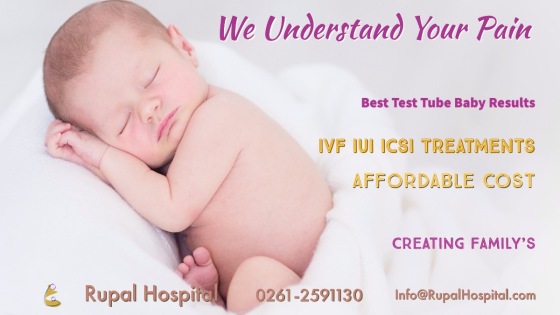Don’t Suffer In Silence – No Need to be Afraid of Infertility – Turning the Taboo to Empathy and Support.
Infertility is viewed worldwide by couples as “a tragedy which carries social, economic and psychological consequences”. It is estimated that 10% of the population globally suffers from infertility, which is generally defined as the inability to conceive after 1 year of unprotected intercourse.
Infertility is Not “Normal” – The problem is that infertility is something that not many people know about unless you’ve dealt with it directly. That’s why it’s seen as being outside of societal norms. In our culture, it is expected that you should have 1,2 children once you’ve reached a “certain age.” And if you don’t, you are seen as a leper, somehow sub-human for not doing your part to procreate.

The reality is that infertility is terribly common.
It’s ironic that though over 27.5 million infertile couples in India suffer from infertility, according to a 2015 Ernst & Young report, very few want to speak openly about this important topic. Only 1% of these people seek diagnosis and treatment. The level of awareness and sensitivity regarding infertility is so dismal that couples regularly face stigma, condescension, alienation, and hostility while going through this incredibly tough period in their lives.
It’s this paradox that makes infertility so darn lonely.
It’s high time that infertility is brought out of the shadows and people are made aware that is merely a medical condition that can be treated. Infertility treatments in India are making big signs of progress and community support and awareness can contribute a great deal to helping many infertile couples start a family. Living in a highly patriarchal society often obsessed with the male child, Indian women especially bear the brunt of the taboo that has been created around infertility.
They are quickly branded as ‘barren’ women, often left out of religious rituals or social gatherings, and even abused in certain cases. Almost invariably, the female partner is always assumed or blamed to be responsible for infertility. At times, the men refuse to get themselves tested or are prevented from doing so by their families because somehow social status and honor are linked to a man’s fertility. Since rigid gender roles are still very much prevalent, the society stops treating infertile people as individuals and instead look at them as failures and outcasts.

Why should infertility not be a taboo?
Infertility is a complex phenomenon caused by a number of factors including problems in reproductive health, age, stress, genetic factors, and even lifestyle. It is not a curse or a bane on any individual and it should be talked about openly without any sort of stigma just like other medical problems. The lack of education and awareness about fertility issues is responsible to a huge extent for the myths and assumptions about infertility and the silence around it despite how common it is. A lot of men and women also don’t have much idea about reproductive health or fertility.
Opening up about fertility problems is especially difficult for couples as they are faced with a lot of unnecessary and harsh questions, comments, and even intrusions. Bringing a new life to the world is a dream for many and infertility is already a sensitive issue for suffering couples. If people share their experiences, their difficulties and challenges with others who are going through the same or offer emotional support and help instead of trying to hush things up, no woman would have to feel ashamed and stigmatised for not being able to conceive. Many people are also doubtful or afraid of fertility treatments and this can only be solved through the active propagation of medical information and free fertility testing facilities.

The Infertility Journey for Indian Women
Undergoing treatment for infertility is not just physically tough but much more challenging emotionally. Having people who can provide empathy and support during this time can help a great deal in managing all the various aspects of treatment. For most Indian women this support is often missing or insufficient. If family members are sensitised about the complexities of infertility and treatment they can be much better equipped at providing the help, guidance and support women need instead of blaming them or intruding. Every woman faces some sort of failure or disappointment in her infertility journey and often this makes her more distant and closed off from others because she doesn’t want to appear as a failure in the eyes of others. Unless the medical facts about infertility treatment are widely and aggressively promoted, people will still shy away from getting themselves diagnosed and availing the opportunity of successfully starting a family.
The Psychological Impact Of Infertility
If you are struggling with depression or finding it difficult to cope with infertility, there’s no need to feel alienated and lonely. Infertility takes a deep psychological toll on people and researchers even suggest that the psychological impact of the infertility experience can be close to that of patients coping with HIV or cancer. Not only is the disease mentally distressing in itself but getting through therapy and medical treatment is often equally stressful and agonising. Infertility is a multi-faceted phenomenon that not only affects one’s body but also one’s mental health, sense of self-worth, confidence, and emotional well-being.

Patients suffering from infertility often experience feelings of shame, inadequacy, frustration, and anxiety due to the stigma that is usually associated with this condition. They can start judging themselves for being unable to conceive or consider themselves inferior to other women or men. This is further aggravated by the culture of taboo and silence that prevails in society around infertility. Infertile couples or individuals often go through a sense of loss when they see their dream of raising children slipping away. The physical and hormonal effects of fertility treatment coupled with doubts and anxiety about the outcome lead to emotional upheaval. It’s very important for both men and women struggling with reproductive problems to pay extra attention to their mental well-being so that they can tide over this period in a healthy manner and not develop long-term problems like chronic depression.
We are constantly striving to break the taboo of Infertility in India. The journey of infertility to parenthood may seem is a tough one, but with the right guidance, assistance, and information this can definitely become an easy journey. Suffering in silence does not help, talking about it in the open does. Infertility is not a taboo. If you are experiencing trouble conceiving or are planning to start a family, connect with our experts – IVF specialists here who will help you turn your hope into reality.
There’s no need to lose hope and give up on your chances to have a child and lead a fulfilling future.



















